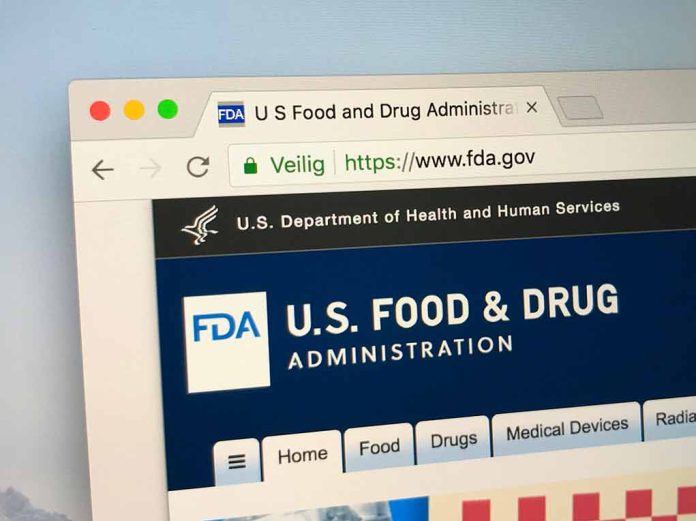
Dozens of widely used generic drugs, including Advil, Tylenol, and Zyrtec alternatives, have been pulled nationwide after an FDA inspection revealed alarming manufacturing violations at an Indian facility that could put consumers at risk.
Key Takeaways
- The FDA has ordered a nationwide recall of nearly 40 generic medications manufactured by Glenmark Pharmaceuticals due to serious manufacturing practice violations
- Affected medications include generic versions of common drugs like Advil, Tylenol, Zyrtec, and medications for serious conditions such as high blood pressure, diabetes, and seizures
- The recall is classified as Class II, indicating potential temporary or medically reversible adverse health consequences for users
- The FDA cited inadequate contamination control procedures and quality control issues at Glenmark’s Indian manufacturing facility
- Patients should consult their healthcare providers before discontinuing prescription medications, but should dispose of recalled over-the-counter products
Manufacturing Violations Trigger Massive Recall in 2025
Glenmark Pharmaceuticals has initiated a nationwide recall of approximately 40 generic medications due to significant violations of manufacturing standards that could potentially compromise patient safety. The recall, classified as Class II by the FDA, indicates a moderate risk level where the products “may cause temporary or medically reversible adverse health consequences,” according to the regulatory agency. The medications were produced at a facility in India where inspectors discovered alarming deficiencies in contamination control and quality assurance protocols required for pharmaceutical production.
“A situation in which the use of, or exposure to, a violative product may cause temporary or medically reversible adverse health consequences, or where the probability of serious adverse health consequences is remote,” said the FDA.
The recall encompasses medications treating a wide range of conditions, from basic pain relievers to critical prescription drugs for chronic conditions. According to official documentation, the FDA determined that Glenmark had “failed to implement adequate contamination control procedures” at its manufacturing facility. The violations specifically involved deviations from current good manufacturing practices (CGMP), which are standardized protocols designed to ensure pharmaceutical products meet strict quality, purity, and safety requirements. The recall was initiated on March 13 and officially classified by the FDA on April 8.
Scope of Affected Medications
The breadth of this recall is particularly concerning as it affects medications used daily by millions of Americans. The list includes generic equivalents of common over-the-counter medications like Advil (ibuprofen), Tylenol (acetaminophen), Motrin (ibuprofen), and Zyrtec (cetirizine). However, the scope extends far beyond these familiar pain relievers and allergy medications to include drugs treating serious medical conditions such as high blood pressure, high cholesterol, seizures, diabetes, and atrial fibrillation.
“The recall, which also includes prescription drugs, was initiated over concerns that the products failed to meet current good manufacturing standards,” said the Food and Drug Administration (FDA).
Among the recalled prescription medications are fenofibrate (for cholesterol), gabapentin (for nerve pain), metformin (for diabetes), carvedilol (for heart conditions), rosuvastatin (for cholesterol), and numerous others. These medications were primarily distributed through major pharmacy chains and retailers, including Walmart, Target, and Costco, with some also available through online platforms like Amazon. While no specific injuries or adverse events have been reported in connection with these drugs, the quality control issues necessitated immediate action.
What Consumers Should Do
For Americans taking these medications, the FDA has provided guidance regarding next steps. Consumers using recalled over-the-counter medications should immediately discontinue use and properly dispose of the products. However, the situation is more complicated for prescription medications. Health officials strongly advise patients not to stop taking prescription drugs without first consulting their healthcare provider, as abruptly discontinuing certain medications could pose greater health risks than continuing them temporarily.
Patients should contact their pharmacy to determine if their specific medications are affected by the recall. Healthcare providers can recommend appropriate alternatives or brand-name versions that are unaffected by this recall. The situation also highlights the ongoing concerns about quality control in overseas pharmaceutical manufacturing facilities that produce a significant portion of America’s drug supply. While no consumer advisory has been issued beyond the recall notice, legal experts are monitoring the situation for potential class action lawsuits depending on whether adverse health effects emerge.













